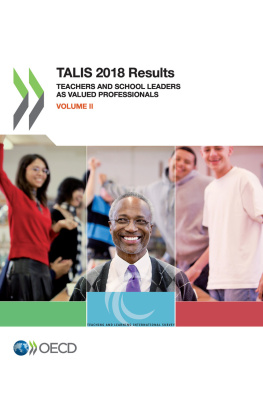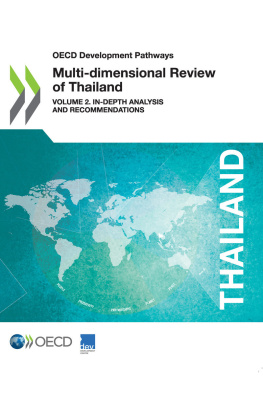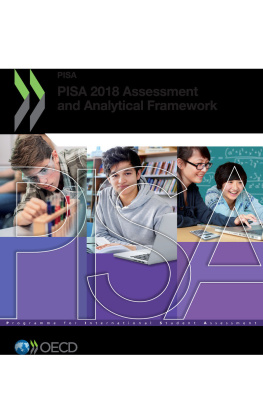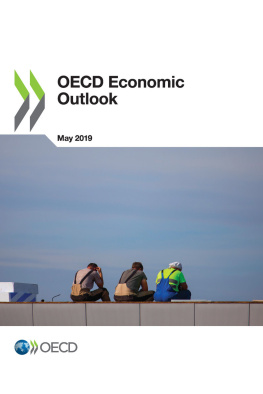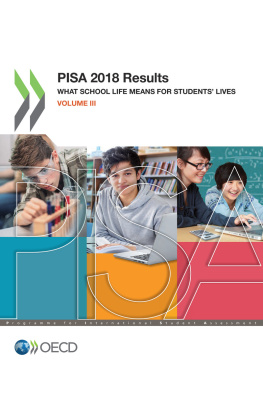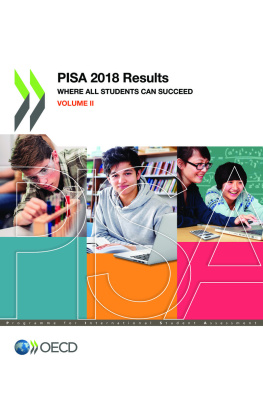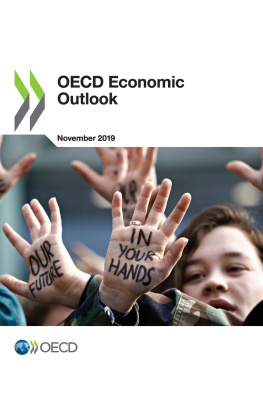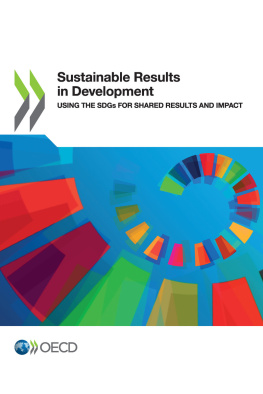OECD - TALIS 2018 Results (Volume II)
Here you can read online OECD - TALIS 2018 Results (Volume II) full text of the book (entire story) in english for free. Download pdf and epub, get meaning, cover and reviews about this ebook. year: 2020, publisher: OECD Publishing, genre: Politics. Description of the work, (preface) as well as reviews are available. Best literature library LitArk.com created for fans of good reading and offers a wide selection of genres:
Romance novel
Science fiction
Adventure
Detective
Science
History
Home and family
Prose
Art
Politics
Computer
Non-fiction
Religion
Business
Children
Humor
Choose a favorite category and find really read worthwhile books. Enjoy immersion in the world of imagination, feel the emotions of the characters or learn something new for yourself, make an fascinating discovery.
TALIS 2018 Results (Volume II): summary, description and annotation
We offer to read an annotation, description, summary or preface (depends on what the author of the book "TALIS 2018 Results (Volume II)" wrote himself). If you haven't found the necessary information about the book — write in the comments, we will try to find it.
OECD: author's other books
Who wrote TALIS 2018 Results (Volume II)? Find out the surname, the name of the author of the book and a list of all author's works by series.
TALIS 2018 Results (Volume II) — read online for free the complete book (whole text) full work
Below is the text of the book, divided by pages. System saving the place of the last page read, allows you to conveniently read the book "TALIS 2018 Results (Volume II)" online for free, without having to search again every time where you left off. Put a bookmark, and you can go to the page where you finished reading at any time.
Font size:
Interval:
Bookmark:
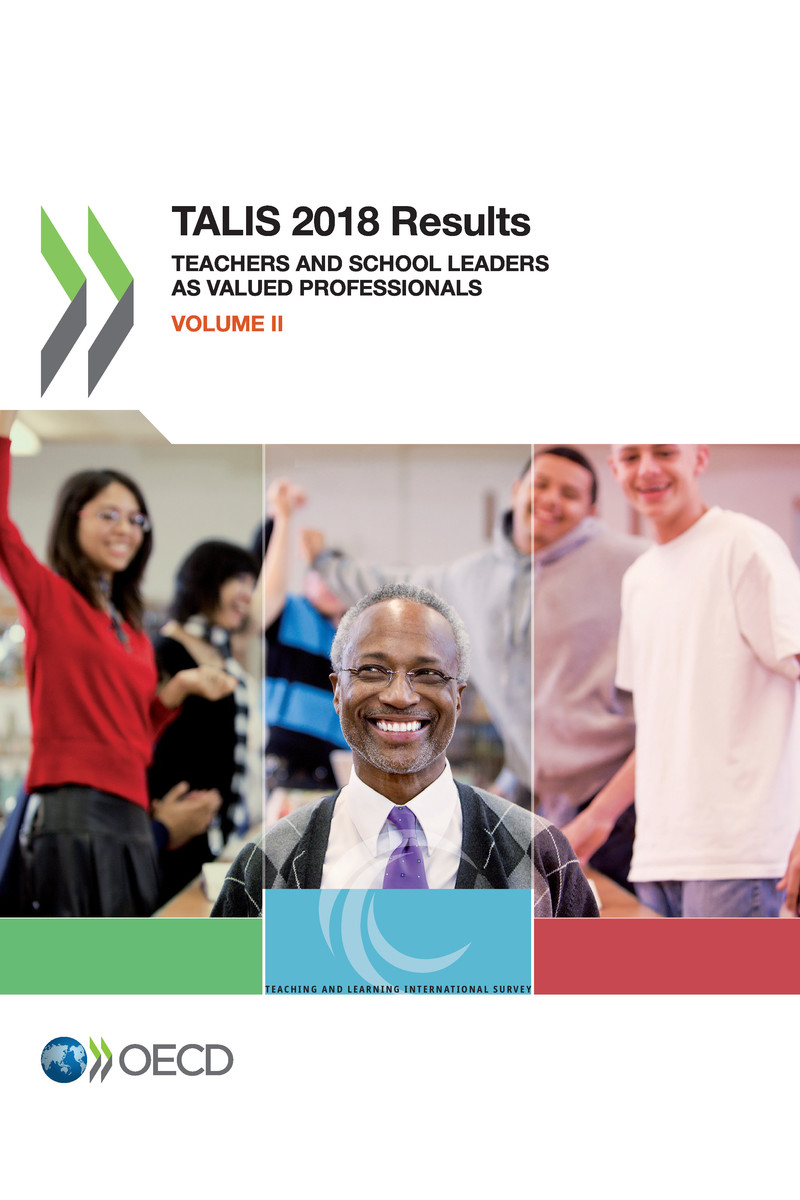
OECD (2020), TALIS 2018 Results (Volume II): Teachers and School Leaders as Valued Professionals , TALIS, OECD Publishing, Paris, https://doi.org/10.1787/19cf08df-en .
The information in this document with reference to Cyprus relates to the southern part of the Island. There is no single authority representing both Turkish and Greek Cypriot people on the Island. Turkey recognises the Turkish Republic of Northern Cyprus (TRNC). Until a lasting and equitable solution is found within the context of the United Nations, Turkey shall preserve its position concerning the Cyprus issue.
The Republic of Cyprus is recognised by all members of the United Nations with the exception of Turkey. The information in this document relates to the area under the effective control of the Government of the Republic of Cyprus.
What does it mean to recognise our teachers and school leaders as professionals? Most people have spent a significant portion of their lives inside a school, and many probably think they are able to identify what makes a good teacher or principal. But being a professional encompasses much more than being good at your job.
A professional is someone who is able to use their expertise to make decisions about their work, who has the autonomy to act on those decisions, and who contributes to the body of professional knowledge. Such decisions and actions are grounded in a specialised set of knowledge and skills, stemming from both quality training and from the constant collaboration with peers and other stakeholders. For teachers and school leaders, professionalism means not only conducting their work in an effective manner, but working to improve their skills, collaborating with colleagues and parents, and thinking creatively about the challenges they face.
The notion of professional teachers and school leaders is not a static one and is continuously evolving to address the challenges that emerge in 21st century education. Teachers and school leaders are increasingly expected to perform new tasks, such as nurturing the development of students social and emotional skills and responding to students individual learning needs. They are also expected to adapt to the technological and digital demands of our era and to use information and communication technologies in their classroom and for collaborating with other professionals. The profile of 21st century teachers and school leaders also paints them as intellectually curious, capable of collecting and analysing data about their school and classroom, and acting upon it. Teaching in todays world requires a new, uniquely modern kind of professionalism.
The Teaching and Learning International Survey (TALIS) offers us insights into the levels of professionalism among teachers and school leaders by giving them a voice on issues surrounding their work. The first volume of TALIS 2018, Teachers and School Leaders as Lifelong Learners , showed that, across all participating countries and economies, there is a highly motivated workforce that places the chance to influence child development and serve underprivileged children at the top of their reasons for becoming a teacher. At the same time, novice teachers are often allocated to the more challenging schools with a larger proportion of students with special needs or disadvantaged backgrounds. Furthermore, even though teachers and school leaders are participating in in-service training, they still feel like they need more training in those competencies required for 21st century education, such as teaching cross-curricular skills, use of ICT teaching and teaching in multicultural or multilingual settings.
These results deserve our attention given the fact that teachers working conditions and classroom processes are changing. In many education systems, teachers are working with diverse classrooms where students ability levels, socio-economic backgrounds and demographic composition can vary significantly. At the same time, schools are becoming increasingly more bureaucratic, with teachers being overloaded with non-teaching activities, particularly administrative tasks.
This second volume of TALIS, Teachers and School Leaders as Valued Professionals, aims to shed a light on teachers and school leaders working conditions, along with their reported satisfaction levels and work-related well-being. It also gives us a sense of how schools can foster productive and engaging working environments where peer learning thrives and teachers are at the centre of discussions on what is best for teaching.
The results tell us that the vast majority of teachers and school leaders enjoy their work systems should capitalise on that enthusiasm by turning schools into intellectually stimulating places to work. If not, disillusionment may creep in. Combine that with stress and an administration-heavy work environment and suddenly teaching becomes far too unattractive to be counted among societys most respected professions. Here it is important to point out that teachers and school leaders whose well-being is looked after are likely to report stronger motivation at work and an increased commitment to staying in the profession. So frustration and dissatisfaction should not be ignored. Identifying and balancing the sources of stress is one of the challenges that TALIS addresses, and it shows that stress need not be the suffocating force it tends to be in other professions.
What these results show us is that, if we expect teachers and schools leaders to behave as professionals, we should treat them as such. This means having an open and direct dialogue with the teaching profession and respecting their view on their own developmental needs.
Our message has been consistent: the quality of a school system cannot exceed the quality of its teachers and principals. But what this new volume of TALIS adds is that the quality of teachers and principals cannot exceed the quality of their training, their opportunities to collaborate and develop, and the quality of their working conditions.
Font size:
Interval:
Bookmark:
Similar books «TALIS 2018 Results (Volume II)»
Look at similar books to TALIS 2018 Results (Volume II). We have selected literature similar in name and meaning in the hope of providing readers with more options to find new, interesting, not yet read works.
Discussion, reviews of the book TALIS 2018 Results (Volume II) and just readers' own opinions. Leave your comments, write what you think about the work, its meaning or the main characters. Specify what exactly you liked and what you didn't like, and why you think so.

